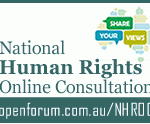Sustainable tourism and awareness of the effects of large numbers of visitors is on the rise. Dr Rosemary Black outlines things to look for while you are away and when planning your trip.
As you look for your next holiday destination, think about the local communities and environment in Australia or overseas where might be travelling to.
For many developing countries like Fiji, Thailand and Indonesia tourism is a major source of foreign exchange and has the potential to be a significant driver for economic growth in these countries. While tourism can have some detrimental impacts on the local environment and communities, it can also provide positive benefits.
Sustainable tourism is tourism that is environmentally, economically and socially sustainable – that really means that it’s tourism that tries to minimise its impact on the environment and communities and at the same time contributes positively to local communities.
So what can you do to ensure that your tourism experiences are sustainable?
The first thing is to realise that you are a vital part of the global tourism industry, and that you can help transform the way the world travels by being and acting as a responsible traveller.
For a sustainable tourism experience, as a tourist ask yourself ‘am I contributing to the local community or environment?’ Travel can and should be much more than simply visiting places, taking pictures and buying souvenirs; it can inspire cultural awareness, tolerance, and commitment to environmental responsibility.
When planning your trip, try to minimize your impact on communities and the environment. One of the most important things you can do to become a responsible traveller is to make informed choices before and during your trip. With a little planning, you can improve the quality of your trip, while making a real difference to the people and places you visit.
When choosing destinations, accommodation, and tour operators, consider which ones work to protect the environment and benefit local cultures and communities. Do your homework, ask questions, seek out quality products by looking for accredited operators, guides and accommodation, and look for opportunities to give something back to the local community or environment – many tourism operators are supporting community projects and offering travellers the opportunity to get involved.
Turn your vacation into opportunities for positive change
By exploring alternative travel choices, you can have a unique trip and avoid leaving negative marks on cultures, economies, and the environment, while making a positive impact on the people and places you visit.
Here are some useful dos and don’ts for your next trip away from
The Ecotourism Society.
These are useful for both holidays in Australia and overseas.
Your Travel Choice Makes a Difference
1. At the hotel: Ask about environmental policies and practices. Talk with staff about working conditions. Does the hotel support community projects?
2. Language: Learn a few words of the local language and use them.
3. Dress: Read up on local conventions and dress appropriately. In many countries, modest dress is important.
4. Behaviour: Be respectful of local citizens’ privacy. Ask permission before entering sacred places, homes, or private land.
5. Photos: Be sensitive to when and where you take photos/video of people. Always ask first.
6. Environment: Respect the natural environment. Never touch or harass animals. Always follow designated trails. Support conservation by paying entrance fees to parks and protected sites.
7. Animal products: Never buy crafts or products made from protected or endangered animals.
8. Pay the fair price: Don’t engage in overly aggressive bargaining for souvenirs. Don’t short-change on tips for services.
9. Buy local: Choose locally-owned lodges, hotels, and B&Bs. Use local buses, car rental agencies, and airlines. Eat in local restaurants, shop in local markets, and attend local festivals/events.
10. Hire local guides: Enrich your experience and support the local economy. Ask guides if they are licensed and live locally. Are they recommended by tour operators?
My book on sustainable tourism and the United Nations millennium goals
A book I have recently co-edited explores the issues of how sustainable tourism can provide positive benefits to local people and the environment in developing countries. The book is called
Sustainable Tourism and the United Nations Millennium Development Goals: Effecting Positive Change and brings together research and examples from around the world of how sustainable tourism can effect positive change. We used the UN
Millennium Development Goals that focus on trying to address global issues like poverty alleviation, primary health care and education for all, environmental sustainability and gender equity as the framework for the book and explored how sustainable tourism can help support and meet the Goals.
We didn’t only have academics writing chapters but sought out local people who actually run sustainable tourism operations in places like Nepal, Costa Rica, Fiji and Indonesia. For example three sisters in Nepal realised there was a niche market demand for solo female trekkers, so using the money their parents had saved for their weddings they set up the 3 Sisters Adventure Trekking. They’ve been really successful and trained lots of local women as trekking guides – giving them tourism and business skills as well as increased confidence and economic independence to spend money on their children’s education and health – so their involvement in the tourism industry has had broader family and community benefits.
I think this book has an important message for tourists from developed countries such as Australia who travel overseas to enjoy the different culture and environment of a developing country; that they can play an important role as responsible tourists and that tourism can help support the health and well-being of local people, assist biodiversity conservation efforts, and preserve local cultural heritage, while it also assists in education, equal opportunities for women, and basic human rights.
Dr Rosemary Black is a Senior Lecturer and Social Researcher in the School of Environmental Sciences at Charles Sturt University teaching and doing research in sustainable tourism, heritage interpretation, outdoor recreation and tour guiding. Before coming to the University about 12 years ago I worked as a park ranger in NSW and as an adventure travel guide working in Nepal, India, China, Tibet and Australia. Prior to that I was based in Melbourne with a number of different conservation organisations. My experience working in the environment and tourism has given me first-hand experience of the negative impacts that tourism can have on the environment and local people. I am passionate about sustainable tourism and educating tourists to see that tourism can benefit both the environment and local communities and at the same time creating a more authentic and meaningful experience for them.













miamylimo
May 22, 2015 at 2:05 am
Vacationing with a cause
Traveling in a foreign land can be exciting. You'll have an opportunity to meet new people and also learn their culture. Vacationing with a cause can be fulfilling not only to yourself but with your travel buddies as well. I agree to what Dr. Rosemary said that, "By exploring alternative travel choices, you can have a unique trip and avoid leaving negative marks on cultures, economies, and the environment, while making a positive impact on the people and places you visit." One of the tips Dr. Rosemary emphasises is that when traveling you need to hire local guides for you to know the history and culture of a certain place.